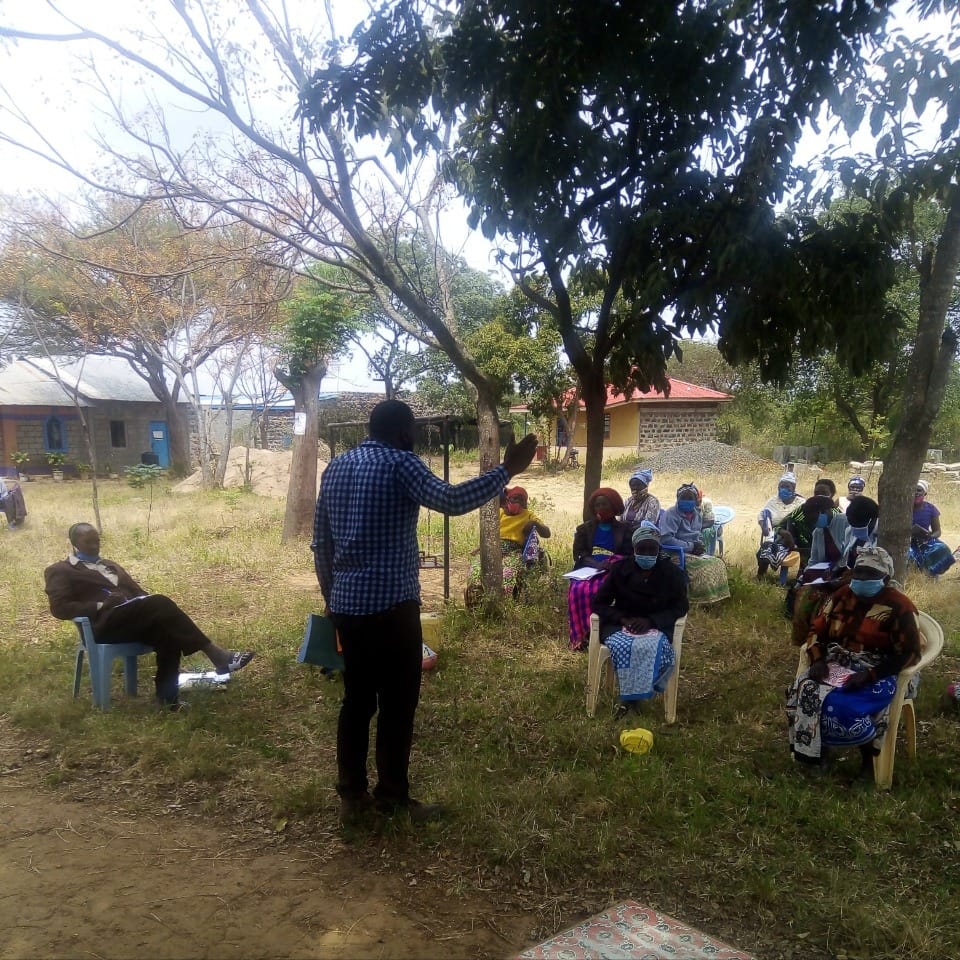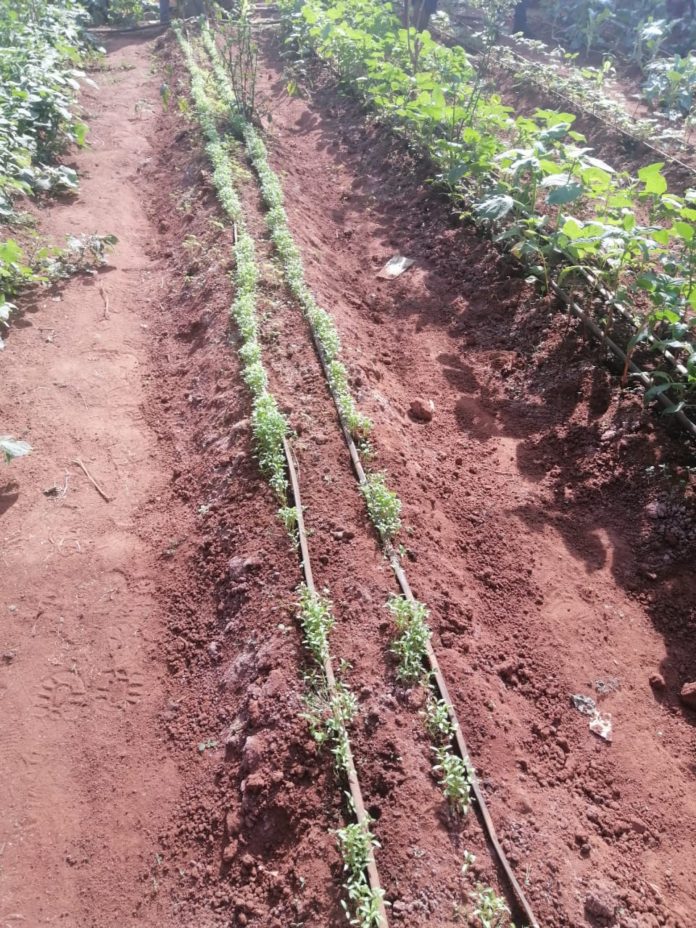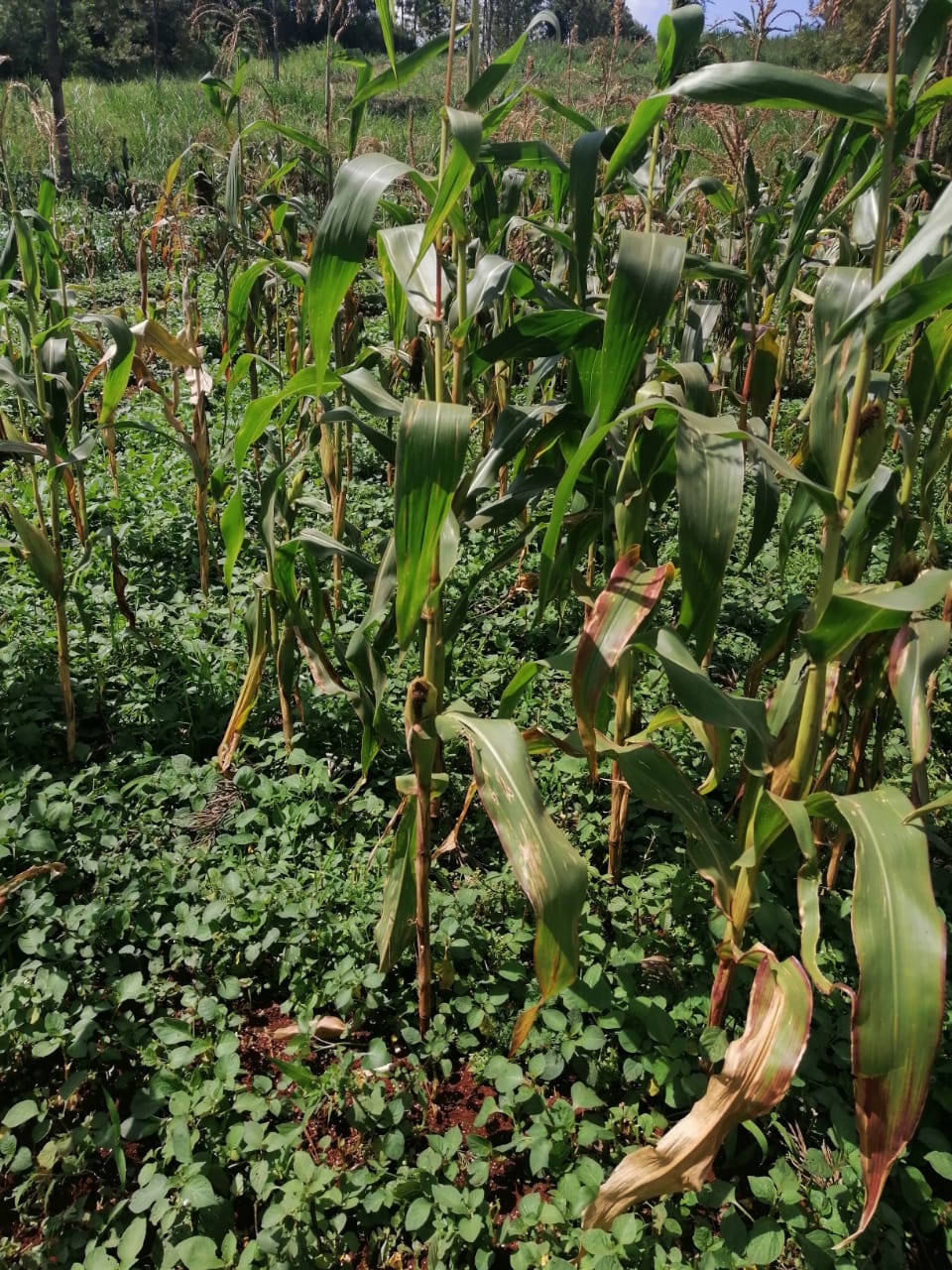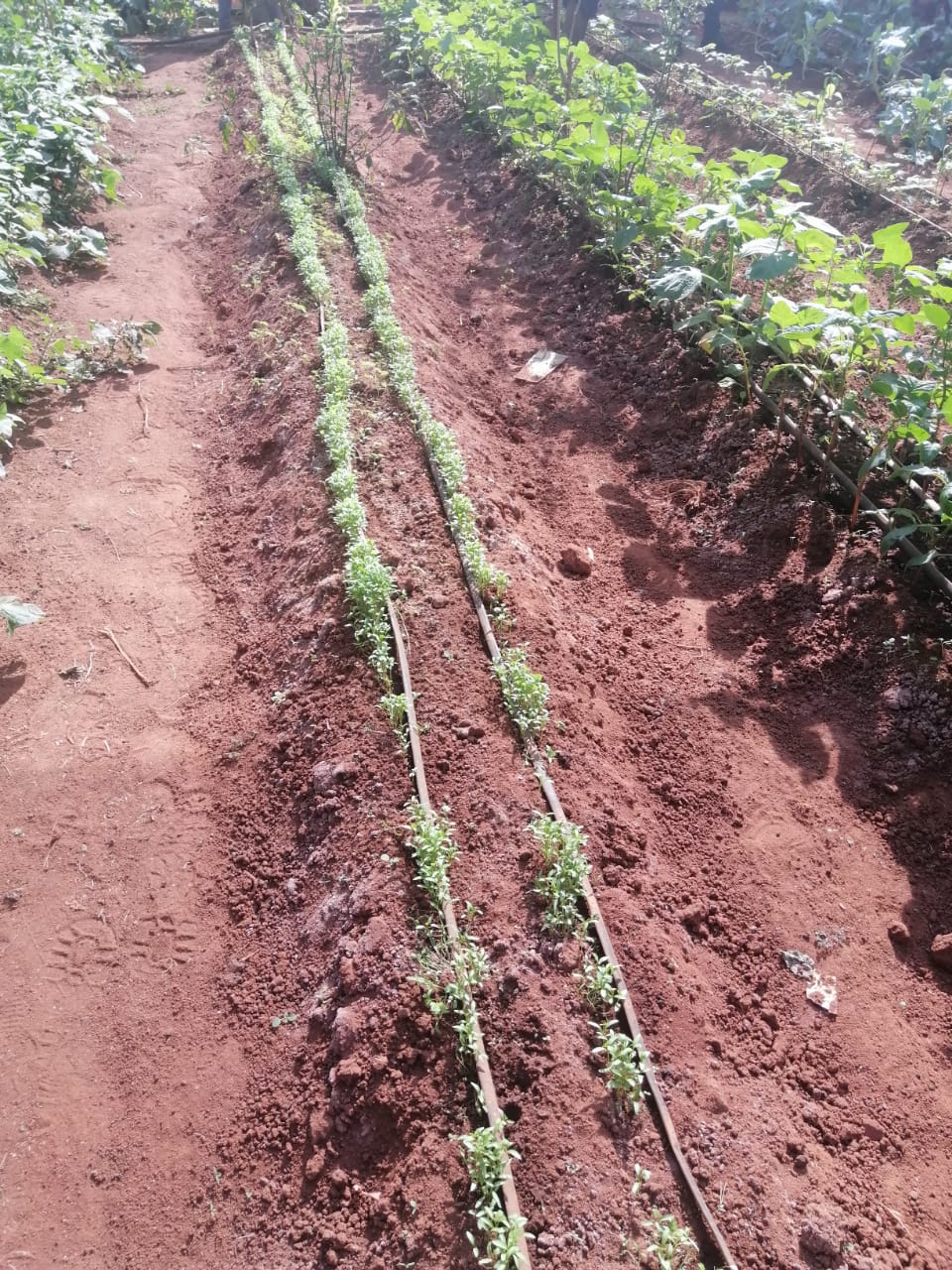By Kevin Lunzalu
Machakos County, Kenya: A group of women from Machakos County is committed to changing the farming narrative that has faced many bottlenecks for a while now. They are involved in climate-smart agriculture which is helping them to boost their family diets.
Through the Kenya Climate-smart Agriculture Project (KCSAP) rolled out by the government in partnership with the World Bank, female farmers are actively involved in farming practices together with their male counterparts with aim of getting better yields.
The project was approved in 2017 is expected to run until 2022 at a total cost of US$ 279.70 million.
In order to boost the nutritional value of the farmers’ output, farmers are advised on seeds that are highly nutritious and palatable. An example is the pigeon pea crop which does very well in the soil and climatic provisions of the area.
All these factors combined ensure that the women farmers under this project realize quality, nutritious and climate-resilient harvests that are reflected in their health and economic sustainability.
The project has empowered the farmers to address some of the pressing diet problems that the area has been facing for many years. Nutritionists from the area have confirmed that micronutrient deficiencies especially from lack of diverse green vegetables have manifested in children over the past decades.
Grace Ndanu, a dairy goat and subsistence crop farmer in Machakos County under the scheme has already started ripping the fruits of integrated farming techniques she learned from this project.
The mother of seven has observed that her family enjoys an increased supply of milk and vegetables on their 10-acre plot. Through integrated organic farming systems, the family no longer relies on climatic seasons and can now produce healthy foods all year round.
“We used to depend on many factors to produce a single variety of crop – soils, seasons, fertilizers, and water. This has since changed as we are trained on efficient water and soil management, seed choice, and production,” explained Ndanu.
Progressive need for adoption of versatile farming practices has over the years been necessitated by the ever-growing challenge of sustaining diet requirements of the world’s ballooning population. While these factors have driven change in most elements of farming throughout history, one has remained constant over the decades – the need for science-backed climate-sensitive farming models.

According to the World Bank, the project has these main components – up-scaling climate-smart agriculture practices, financing interventions that increase productivity, enhanced resilience, and reduced greenhouse gas emissions.
This project also seeks to enhance climate-smart agricultural research and seed systems, build individual and institutional capacities, and improve coordination and management. At the national level, it is implemented by the Ministry of Agriculture, Livestock, and Cooperatives.
The United Nations Intergovernmental Panel on Climate Change (IPCC) estimates that about 24 percent of the total anthropogenic emissions can be linked with agricultural activities. Countries in the tropics, like Kenya, are some of the most agriculturally productive regions in the world, while at the same time facing the greatest threat to farming-induced climate change.
A report by the Global Forest Atlas also indicates that tropical and subtropical countries have lost about 80 percent of their forests due to industrial agriculture.
The Kenya Bureau of Statistics reports that 26 percent of children in the country are malnourished. Consumption patterns have also been changing over time, with a notably increased demand in meat-rich diets and wastage, creating a constant need for increased food production.
In addition, the traditional methods of farming have been flagged as discriminatory, as certain foods can only be produced in specific areas within the country. This has compromised food security in some regions.
Machakos County is one of the 24 counties in Kenya where KCSAP has been widely rolled out since its inception. At the county level, the project is implemented by the department of agriculture, which has contracted a private agricultural company to facilitate implementation in rural areas.
The agency further works with organized groups and individual farmers to achieve the objectives of KCSAP. 2995 female farmers, who are about 73 percent of the 4117 farmers targeted in Machakos County are the current beneficiaries of the project, according to Samuel Atula, a project administrator with Kings Agricultural Services, the implementing company.
“We have increasingly observed cases of as low immunity, lack of Vitamin A, eye diseases, and stunted growth in children”, said Salome Wambui, a nutrition specialist and lecturer at the Kiambu Institute. An organic farmer, Wambui, believes knowledge and skills in climate-smart farming will enable women to “keep the health of their households in check”.
“It is an important step as the farms of current beneficiaries will be used as demonstration units and demystify the myth that some food crops cannot grow in Machakos County,” she said. Wambui has observed the significant impact of climate change on the production of food in the county and expressed her desire for interventions that lead to diversified diets that will enhance the health status of the residents.
“I hope that the climate-smart interventions will go beyond teaching women how to produce enough food but focus more on how to grow healthy local types, effective storage, and minimization of wastage at the household level,” Wambui said.
Intercropping and agroforestry techniques are also helping the farmers limit the destructive impact of floods and minimize the rotting of crops such as watermelons.
Atulo emphasized that water conservation and soil management were some of the key climate elements women have learned under KCSAP. “Climate change has catalyzed the scarcity of water resources in Machakos County. We seek to ensure that farmers utilize available water resources in an effective and sustainable manner,” he noted.
Atula added that Climate change-induced factors such as desertification and flash floods damage soils by washing away the topsoil and vegetation. “We are addressing the problem by training farmers on sustainable soil management principles. The farmers are encouraged to embrace mulch planting and zero tillage to conserve the soil and water.”
In order to empower women in the region to diversify their products and diversify their diet choices, the agricultural service provider has been training farmers on seed selection, particularly the use of certified seeds.
“This is a major priority because the quality of seed determines the output,” said Atula. He went further to explain that climate change limits productivity, a factor that has necessitated the need for high yielding seeds that are also resilient to climate dynamics.
According to Mr. Daniel Kiluu, the Director of Climate Change at Machakos County, innovative interventions are encouraged as rainfall trends have changed. “Rainfed agriculture is no longer reliable as the patterns are unpredictable,” affirms Daniel. “The other issue is the pollution of Athi River especially due to industrial waste discharge, which makes the water unfit for food production,” states Dainel.
Agricultural extension officers from the country government also teach the women on nature-friendly methods of pest control. “That is why we encourage the use of integrated pest management strategies where the farmers are trained to utilize a combination of biological control and use of friendly agrochemicals. The goal is to ensure that crops perform well while the ecosystem is protected,” said Atula.
The women have also been introduced to smart technologies as a means of ensuring efficient and sustainable production. The smart farming practices such as data-driven agronomy, precise application of manure and effective irrigation management have empowered the women to grow a wide variety of crops with guaranteed high yields. The farmers believe that this has contributed to increased diversity and quantity of locally produced foods, and improved diets.
One of the community groups benefiting from this project is the Kyeni Self Help Group (KSHG). Under the Kenya Climate-smart project, the group will expand its kitchen gardens and increase the area under irrigation for increased yields of organic foods. The group is emphasizing on the indigenous African leafy green vegetables that are fast to mature and appeal to the local markets.
With projects such as the KCSAP in place, the future of women-led climate-smart interventions looks bright in Kenya. A close focus on production, sustainability, and profitability will attract more farmers to embrace these models of crop and animal husbandry, a clear pathway to self-reliance, diversified diets, and improved nutrition. Besides, this could also hopefully help in closing the existing regional diet gap in Kenya.
















